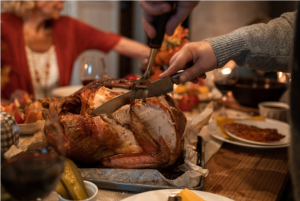Why Mantras Over Resolutions?
Every January, millions of people set ambitious New Year’s resolutions, only to abandon them by February. Resolutions often fail because they’re overly broad, unrealistic, or reliant on sheer willpower. Instead of aiming for perfection, consider embracing New Year’s mantras—positive, guiding principles that inspire growth and help you navigate the year with intention. Here are some empowering mantras to adopt in 2025 as an alternative to traditional resolutions.
Mantras provide a mindset shift rather than a rigid goal. Unlike resolutions, which can feel like an all-or-nothing commitment, mantras are flexible and evolve with you. They act as reminders of your values and help you stay grounded as you move through life’s ups and downs.
10 New Year’s Mantras for 2025
- Progress Over Perfection: Embrace growth in small steps. This mantra reminds you to focus on the journey rather than striving for an impossible ideal.
- I Choose Balance: Prioritize harmony in all areas of life, from work and relationships to self-care and rest.
- I Am Enough: Celebrate who you are in this moment while leaving room for personal development.
- Less And Better: Focus on quality over quantity, whether it’s in commitments, possessions, or relationships.
- I Will Show Up: Commit to being present and engaged, even on days when motivation wanes.
- Nourish to Flourish: Take care of your body, mind, and soul so you can thrive in all areas of life.
- I Create My Own Calm: Find moments of peace within, even when life feels chaotic.
- I Will Make Space: Let go of what no longer serves you to create room for growth and joy.
- I Am Grateful: Focus on gratitude to cultivate positivity and resilience.
- I Trust the Process: Have faith in your ability to handle challenges and embrace opportunities as they come.
How to Incorporate Mantras into Your Year
To make mantras a part of your daily life, start by writing them down where you’ll see them often—on your mirror, phone background, or journal. Repeat them during moments of stress or uncertainty to ground yourself. Pair mantras with mindfulness practices like meditation or deep breathing to enhance their impact.
In 2025, let’s move away from the pressure of rigid resolutions and embrace the power of guiding principles. By adopting mantras, you can navigate the year with intention, resilience, and self-compassion. Choose a mantra that resonates with you, and let it guide your journey into the new year with grace and positivity.


 ‘Tis that time of year once again—the season of silver bells, hustle and bustle, holiday lights aglow, marked by friends and family gathering, and of course, an elaborate production of delectable treats! The holidays offer a chance to enjoy the company of loved ones, take part in traditions, practice gratitude, and indulge in festive foods together. However, navigating this period can be a challenge for many, with some either restricting or overindulging in their favorite culinary delights. Embracing mindfulness can be the key to fostering a healthier relationship with food and enhancing our overall eating experience. Below are some suggestions that you may find helpful in terms of discovering how you can relish the foods you adore (guilt-free!) throughout the holiday season!
‘Tis that time of year once again—the season of silver bells, hustle and bustle, holiday lights aglow, marked by friends and family gathering, and of course, an elaborate production of delectable treats! The holidays offer a chance to enjoy the company of loved ones, take part in traditions, practice gratitude, and indulge in festive foods together. However, navigating this period can be a challenge for many, with some either restricting or overindulging in their favorite culinary delights. Embracing mindfulness can be the key to fostering a healthier relationship with food and enhancing our overall eating experience. Below are some suggestions that you may find helpful in terms of discovering how you can relish the foods you adore (guilt-free!) throughout the holiday season! Engage all your senses: Whether you’re savouring a main course, indulging in dessert, sipping coffee, or mingling at a wine and cheese party, immerse yourself in the experience using your senses. Pay attention to the texture, temperature, scent and flavours of the food. Notice how the food is looks and is presented.
Engage all your senses: Whether you’re savouring a main course, indulging in dessert, sipping coffee, or mingling at a wine and cheese party, immerse yourself in the experience using your senses. Pay attention to the texture, temperature, scent and flavours of the food. Notice how the food is looks and is presented.
 More Insights into Mindfulness: While mindfulness is beneficial throughout the year, its practice can be particularly valuable during the holidays. Continue honing these skills into the new year, remembering that food is a connects us to others, has value in traditions, and is a source of celebration, rather than shame or guilt. This holiday season, create space for your favourites with gratitude and see what that space gives back to you.
More Insights into Mindfulness: While mindfulness is beneficial throughout the year, its practice can be particularly valuable during the holidays. Continue honing these skills into the new year, remembering that food is a connects us to others, has value in traditions, and is a source of celebration, rather than shame or guilt. This holiday season, create space for your favourites with gratitude and see what that space gives back to you.